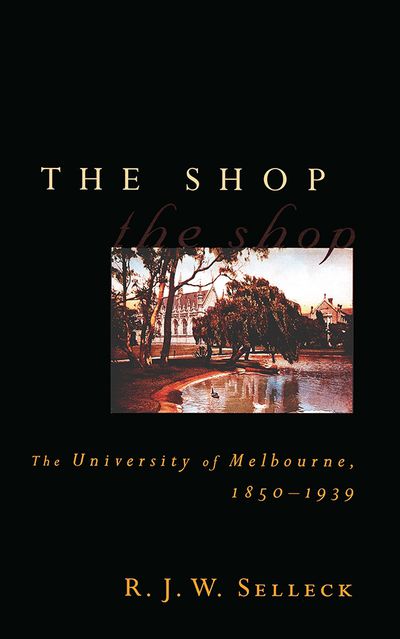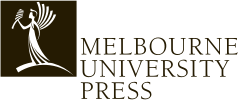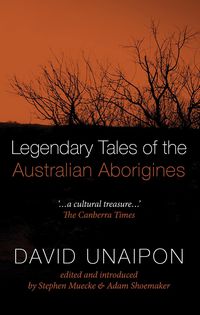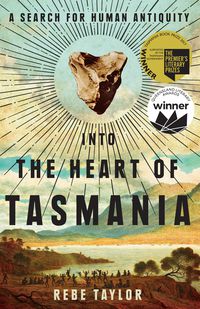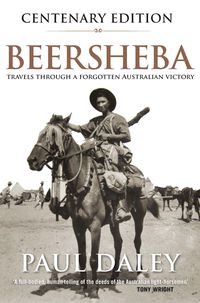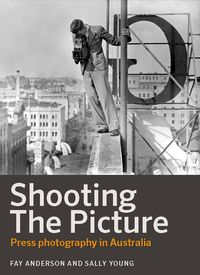The Shop
The University of Melbourne 1850-1939
Richard Selleck
Paperback
Out of stock
$80.00
Member discount
As an MUP member you get 40% off the price of this book.
Member discount
As an MUP member you get 40% off the price of this book.
Member discount
As an MUP member you get 100% off the price of this book.
Member discount
As an MUP member you get 25% off the price of this book.
Member discount
As an MUP member you get 25% off the price of this book.
Member discount
As an MUP member you get 25% off the price of this book.
Member discount
As an MUP member you get 40% off the price of this book.
Member discount
As an MUP member you get 10% off the price of this book.
Member discount
As an MUP member you get 35% off the price of this book.
Member discount
As an MUP member you get 40% off the price of this book.
The Shop
The University of Melbourne 1850-1939
Richard Selleck
This is a warm, wry narrative, gentle but persistent in its ironies, and marvelously attuned to the untidiness, drama and farce of the birth and progress of a self-consciously prestigious institution.
Amid the excitement and disorder of the gold rush, Melbourne's middle class created the University of Melbourne—known to many generations as 'The Shop'—to serve the interests of its sons. The foundation professors were well acquainted with the ancient universities of England and Ireland, but they swiftly realised that colonial society had different needs and visions.
Richard Selleck adroitly places the university in its historical and political context. He examines its relation to government, the press and the school system, and its mutually self-serving links with the professions such as law, medicine, engineering and teaching. He analyses the contemporary intellectual debates: the significance of evolution and political economy, the power and promise of science, the challenge to religious belief, the status of classical education, the growth of socialism, the equivocal liberation of women, the still more equivocal treatment of indigenous people, the birth of a research university, the vagaries of Empire…
Richard Selleck adroitly places the university in its historical and political context. He examines its relation to government, the press and the school system, and its mutually self-serving links with the professions such as law, medicine, engineering and teaching. He analyses the contemporary intellectual debates: the significance of evolution and political economy, the power and promise of science, the challenge to religious belief, the status of classical education, the growth of socialism, the equivocal liberation of women, the still more equivocal treatment of indigenous people, the birth of a research university, the vagaries of Empire…
Amid the excitement and disorder of the gold rush, Melbourne's middle class created the University of Melbourne—known to many generations as 'The Shop'—to serve the interests of its sons. The foundation professors were well acquainted with the ancient universities of England and Ireland, but they swiftly realised that colonial society had different needs and visions.
Richard Selleck adroitly places the university in its historical and political context. He examines its relation to government, the press and the school system, and its mutually self-serving links with the professions such as law, medicine, engineering and teaching. He analyses the contemporary intellectual debates: the significance of evolution and political economy, the power and promise of science, the challenge to religious belief, the status of classical education, the growth of socialism, the equivocal liberation of women, the still more equivocal treatment of indigenous people, the birth of a research university, the vagaries of Empire, and the precariousness of academic freedom.
This book challenges those who work or study in universities today, and those who fund them, to measure themselves against their predecessors. The inescapable conclusion is that most of the issues that convulsed the University of Melbourne in its formative decades are still alive and troublesome today.
Richard Selleck adroitly places the university in its historical and political context. He examines its relation to government, the press and the school system, and its mutually self-serving links with the professions such as law, medicine, engineering and teaching. He analyses the contemporary intellectual debates: the significance of evolution and political economy, the power and promise of science, the challenge to religious belief, the status of classical education, the growth of socialism, the equivocal liberation of women, the still more equivocal treatment of indigenous people, the birth of a research university, the vagaries of Empire, and the precariousness of academic freedom.
This book challenges those who work or study in universities today, and those who fund them, to measure themselves against their predecessors. The inescapable conclusion is that most of the issues that convulsed the University of Melbourne in its formative decades are still alive and troublesome today.
Paperback
Out of stock
$80.00
Member discount
As an MUP member you get 40% off the price of this book.
Member discount
As an MUP member you get 40% off the price of this book.
Member discount
As an MUP member you get 100% off the price of this book.
Member discount
As an MUP member you get 25% off the price of this book.
Member discount
As an MUP member you get 25% off the price of this book.
Member discount
As an MUP member you get 25% off the price of this book.
Member discount
As an MUP member you get 40% off the price of this book.
Member discount
As an MUP member you get 10% off the price of this book.
Member discount
As an MUP member you get 35% off the price of this book.
Member discount
As an MUP member you get 40% off the price of this book.
